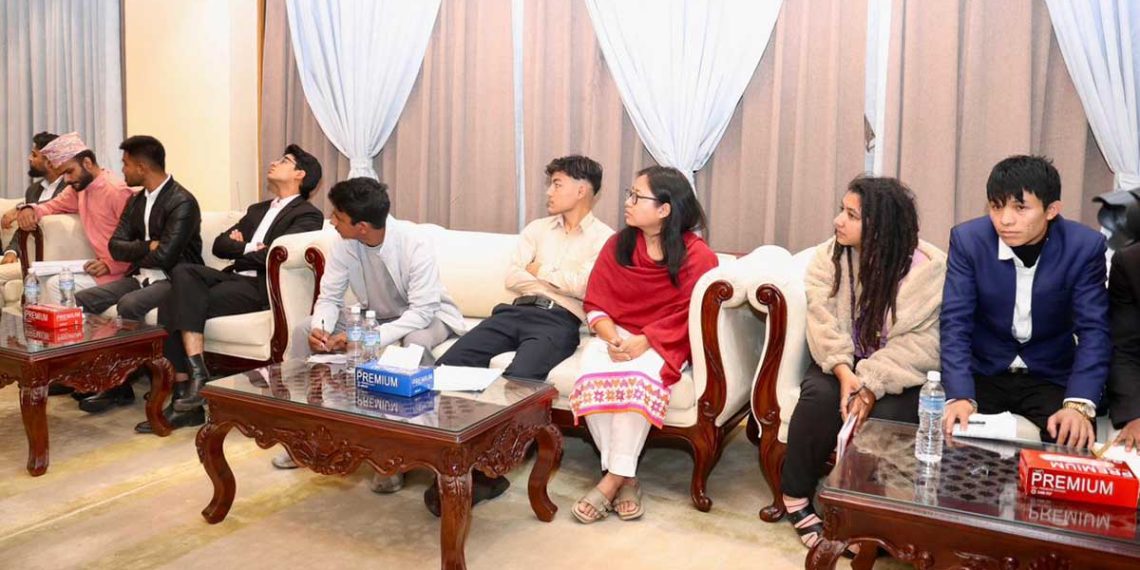Prime Minister Sushila Karki led a tripartite discussion on Wednesday between the government, major political parties, and representatives from Nepal’s Gen Z community.
The Karki administration has been conducting a series of consultations over the past weeks to build national consensus and prepare institutional mechanisms necessary for the elections. The objective of these frequent discussions is to promote political collaboration and ensure a favourable atmosphere for the upcoming national elections scheduled for March 5, 2026
The meeting, organised at the Prime Minister’s official residence in Baluwatar, consisted of 30 participants, 16 representing political parties and 14 representing youth-led Gen Z organisations. Senior government officials, including Home Minister Om Prakash Aryal, Minister for Communications and Information Technology Jagadish Kharel, Minister for Law, Justice and Parliamentary Affairs Anil Kumar Sinha, and Minister for Education, Science and Technology Mahabir Pun, accompanied the Prime Minister during the talks.
The meeting consisted of the participation of key political actors from major parties such as the Nepali Congress, CPN (UML), CPN (Maoist Centre), Rastriya Swatantra Party, CPN (Unified Socialist), and Rastriya Prajatantra Party. Whilst the youth representatives were members of Indigenous Gen Z Collective, How to Desh Bikas, and Gen Z Movement Alliance presented their perspectives on youth involvement and accountability in governance.
Prime Minister Karki reflected on her unexpected journey into leadership and the sense of national responsibility that guided her decision to assume office.
“I didn’t come here out of desire. When I said I wouldn’t get involved in politics, the President reminded me that one should not refuse responsibility when the country is in need. Even young people from Gen Z came to my house and requested me to take on a guardianship role — they even wept, insisting I must become Prime Minister,” Karki expressed.
She also addressed growing speculation surrounding foreign involvement in Nepal’s internal affairs, rejecting the claims as baseless.
“No foreigner has come to me and told me to do this or that. We meet ambassadors at Singha Durbar, not at Baluwatar. So, the talk about foreign interference is a false narrative,” she clarified.
Earlier, on October 21, the Prime Minister had separately held discussions between the government and political parties, as well as with Gen Z representatives in the presence of President Ramchandra Paudel. These successive rounds of talks, officials said, reflect the government’s intent to promote inclusivity, cooperation, and trust between political leaders and emerging youth voices ahead of the 2026 elections.




